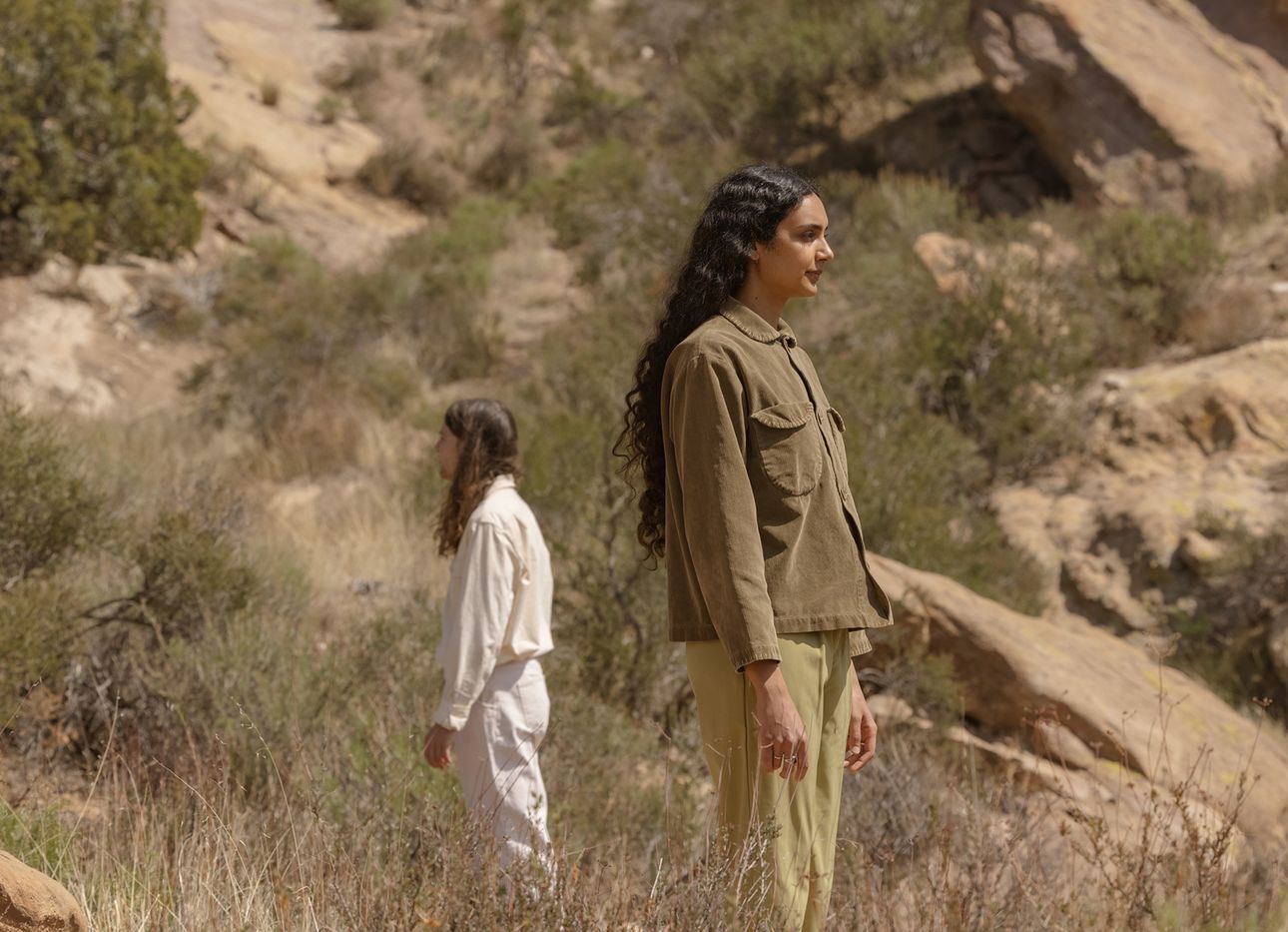
This Los Angeles Folk Duo’s New Single Was Inspired by an Episode of Our Time Sensitive Podcast
Last week, the emerging Los Angeles folk duo Junaco released its latest single, “Weight of the World,” which they wrote after listening to Ep. 20 of our Time Sensitive podcast featuring fashion designer Jesse Kamm. (Pakistani singer Shahana Jaffer, who started the band three years ago with drummer Joey LaRosa, met Kamm when the designer spotted Jaffer on the street from her car, and pulled over to ask if she’d model for her summer 2019 campaign.) Kamm’s perspective on community, art, and intentionality resonated with the pair, who used the ideas as the foundation for their new song. We recently phoned Jaffer and LaRosa to learn more about how they developed the track. The two will release their second EP, Blue Room, in June.
What was it about the Time Sensitive episode with Jesse that prompted you to write a song based on it?
Jaffer: The episode reminded us of the importance of prioritizing time, and making sure that everything we do is done deliberately. Jesse spoke about the resourceful local artisans she works with who use specialty skills to do their jobs, and the happiness they derive from it. It seems like society is returning to a similar practice, of doing one thing really well, and doing it with intention, with the Earth and community in mind. Those ideas really resonated with us as musicians, and immediately inspired us to write the song the day we listened to the episode. We finished the track in just a few hours.
The song’s lyrics sound like your own reflection of the concepts Jesse discussed. It begins with the line, “I’d like to go back in time and find the way we lived life.” There’s also the refrain, “Slow down, I can’t help but look around.”
Jaffer: It’s true. I’ve been thinking about how we’ve lost a bit of humanity with all the technological advancements we have right now, and wondering if they’re positive or not. We don’t know yet. In my experience, when I’m away from them, and with people I love, outside, or cooking together, it feels like such a rich life. That’s where we come from as humans: from community, using what we have, and not in excess.
But there’s a juxtaposition in that opening line, too, which ends with: “But I know we’re lucky to be here.” There are a lot of good things that have come out of where we are now. I’m constantly in that back-and-forth, and that’s what the song encompasses: finding a balance within yourself. How do you achieve that rich lifestyle? What defines that for you?
Taking time to be present is a constant theme in your approach to work and life. Why is that important to you?
LaRosa: For me personally, I know if I don’t set time to simply be with the Earth, I won’t do it. So I have to schedule it. Life’s too short—I’ve watched too many people around me not set aside time for themselves or their communities. In the music business, we’re told every day how much content the world needs from us. We’re just trying to fight it. We started Junaco to do things the way we want to do them.
Jaffer: I feel like I’m constantly checking myself: Am I being truthful and honest? Am I trying to be someone else? Am I being careful with my time? It’s so important to take a step back, especially being young musicians trying to break into the industry. We’re often living in our own worlds, whether it’s work, family, or relationships, and they can get so small. Getting out, immersing myself in nature—or completely losing sight of reality—keeps me sane. It’s almost a relief to remember, Okay, I’m just a human being here on Earth. And that’s really all that matters.
How can music help us become more aware ourselves, and of those around us?
LaRosa: Music can make you time travel, or take you to a moment you had previously, where you can learn something about yourself. There’s really no other way to remember in that vivid, sensory way.
Jaffer: One of the greatest things about music—and art in general—is that it knows no boundaries. It connects people regardless of their backgrounds or perspectives on life, and it has the power to strengthen feelings that people may not realize they have. That’s because music isn’t so direct; it’s an emotional thing.